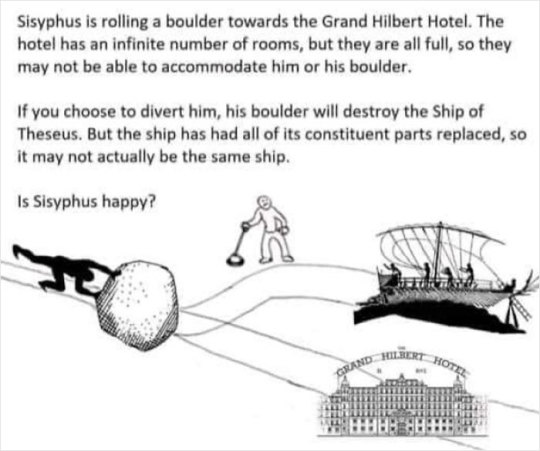#ethics
Text
We ask your questions so you don’t have to! Submit your questions to have them posted anonymously as polls.
#polls#incognito polls#anonymous#tumblr polls#tumblr users#questions#polls about ethics#submitted dec 15#ethics#piracy
766 notes
·
View notes
Note
why is it that we only have like two licenses from any mech producer that’s a good guy? For a game where like there are clear good and bad guys (even if who you play isn’t necessarily linked to that) it seems strange to me that the only loot and XP you get is… more benefits from the bad guys
I can tell you the answer, but to do so, we're gonna have to talk about a completely different TTRPG.
If you've read @makapatag's truly excellent Filipino martial arts TTRPG Gubat Banwa (and if you haven't, here it is), you may notice that every single character class description (with one notable exception) ends with one of these babies:



I am not Makapatag, and I cannot write with quite as much grace and eloquence as he can, but I will try:
If you choose to become a Lancer, ask yourself why you mock the name of peace with these weapons of war. You call yourself a saviour, but your steed was forged from the murder of a world. You stride across the sky in a colossus built in your own image, so why are you too cowardly to give it your face? Why do you believe these machines of death can preserve life?
It is important to note that the admonitions in Gubat Banwa are not just there to make you feel bad; they are there as legitimate questions. The Sword Isles have seen so much blood, death and tragedy. Wars are not glorious and killing is not a game. So, knowing all of that, why have you taken up this discipline - no matter how noble and virtuous it might claim to be - to shed more blood, to bring more death, to write more tragedy? What could possibly drive you to this? What need is so great that you must kill?
The thing with Gubat Banwa is that there are legitimate answers to these questions! There are bad people doing bad things, and some of them will not be stopped with words or kindness. Sometimes, as sorrowful as it is, killing is the correct choice to prevent greater suffering and deeper tragedy - but adding less misery and death to the world is still adding some amount of it. Even the most necessary wars will drench the ground in the blood of the innocent.
A sword is a tool meant to kill humans; while it can be used for other things, it is not well-suited to anything other than this. A mech is, in its most basic essence, just a very complicated sword: it's usually used on things larger than a person, but it's still a tool built to kill.
So why have you taken up this path? Humanity was saved from the brink of extinction and has created wondrous technologies like printers, cold fusion and mind-machine interface, and yet you use them to play soldier in a giant metal man. Why do you choose to take up this machine of death, built by the greedy and pitiless? Why do you think these machines can ever make things right?
Because sometimes, despite everything, they can.
Warhammer 40K shows an awful world full of monsters and monstrosity, and in the darkest moments of its history, Lancer's world looked just as bleak, but Lancer's world differs in one crucial way. Warhammer's world has long given up trying to be better, but Lancer's world never did. Lancer's world kept insisting a better world is possible, and it used what tools it had to make it so.
Sometimes the correct choice, no matter how bitter it may seem, is to kill someone. When you need to do this, a sword is a perfectly good choice for the job.
If you find yourself discomforted by the fact that all the people you can buy mechs from are corrupt and immoral - good! You have correctly engaged with the text. You have understood that the sort of people who would make giant walking death machines and sell them for profit are not good people. But you still have a job to do, and you need the correct tools, and those people have them.
Lancer is not a game about a perfect world - it is a game about a deeply flawed and imperfect one that does not let its imperfection stop it from trying. You have to try to make a better world, even with imperfect tools made by unpleasant people.
364 notes
·
View notes
Text
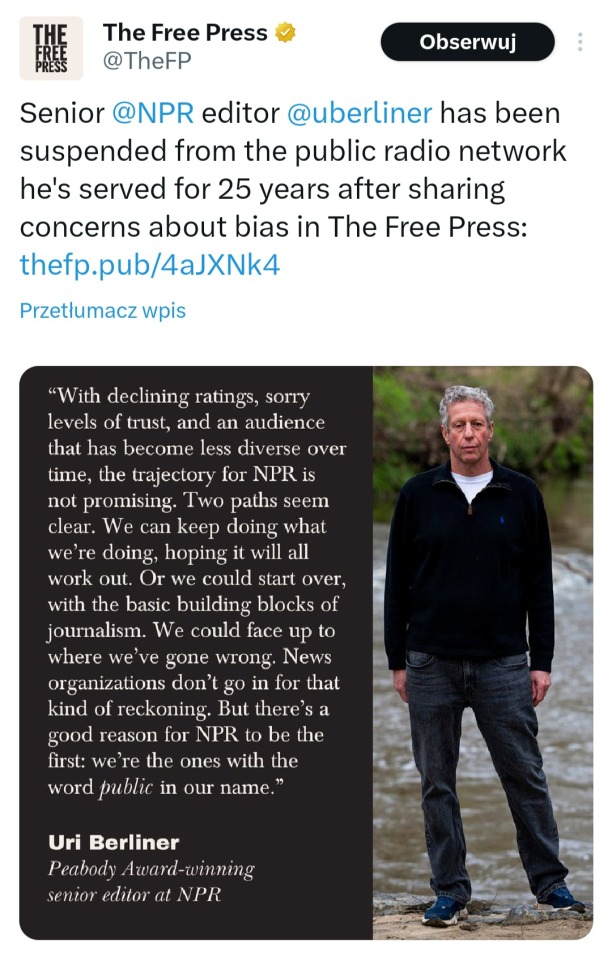
Journalists demonstrate that they are unbiased by suspending the editor who has said that they are biased
52 notes
·
View notes
Quote
No moral question presents itself to the child as long as he is still incapable of recognizing himself in the past or seeing himself in the future. It is only when the moments of his life begin to be organized into behaviour that he can decide and choose. The value of the chosen end is confirmed and, reciprocally, the genuineness of the choice is manifested concretely through patience, courage, and fidelity.
Simone de Beauvoir, The Ethics of Ambiguity
#philosophy#quotes#Simone de Beauvoir#The Ethics of Ambiguity#choices#freedom#self#awareness#character#virtue#ethics
34 notes
·
View notes
Photo
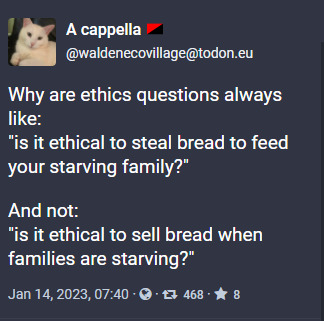
24K notes
·
View notes
Text
"The idea of reforming Omelas is a pleasant idea, to be sure, but it is one that Le Guin herself specifically tells us is not an option. No reform of Omelas is possible — at least, not without destroying Omelas itself:
If the child were brought up into the sunlight out of that vile place, if it were cleaned and fed and comforted, that would be a good thing, indeed; but if it were done, in that day and hour all the prosperity and beauty and delight of Omelas would wither and be destroyed. Those are the terms.
'Those are the terms', indeed. Le Guin’s original story is careful to cast the underlying evil of Omelas as un-addressable — not, as some have suggested, to 'cheat' or create a false dilemma, but as an intentionally insurmountable challenge to the reader. The premise of Omelas feels unfair because it is meant to be unfair. Instead of racing to find a clever solution ('Free the child! Replace it with a robot! Have everyone suffer a little bit instead of one person all at once!'), the reader is forced to consider how they might cope with moral injustice that is so foundational to their very way of life that it cannot be undone. Confronted with the choice to give up your entire way of life or allow someone else to suffer, what do you do? Do you stay and enjoy the fruits of their pain? Or do you reject this devil’s compromise at your own expense, even knowing that it may not even help? And through implication, we are then forced to consider whether we are — at this very moment! — already in exactly this situation. At what cost does our happiness come? And, even more significantly, at whose expense? And what, in fact, can be done? Can anything?
This is the essential and agonizing question that Le Guin poses, and we avoid it at our peril. It’s easy, but thoroughly besides the point, to say — as the narrator of 'The Ones Who Don’t Walk Away' does — that you would simply keep the nice things about Omelas, and work to address the bad. You might as well say that you would solve the trolley problem by putting rockets on the trolley and having it jump over the people tied to the tracks. Le Guin’s challenge is one that can only be resolved by introspection, because the challenge is one levied against the discomforting awareness of our own complicity; to 'reject the premise' is to reject this (all too real) discomfort in favor of empty wish fulfillment. A happy fairytale about the nobility of our imagined efforts against a hypothetical evil profits no one but ourselves (and I would argue that in the long run it robs us as well).
But in addition to being morally evasive, treating Omelas as a puzzle to be solved (or as a piece of straightforward didactic moralism) also flattens the depth of the original story. We are not really meant to understand Le Guin’s 'walking away' as a literal abandonment of a problem, nor as a self-satisfied 'Sounds bad, but I’m outta here', the way Vivier’s response piece or others of its ilk do; rather, it is framed as a rejection of complacency. This is why those who leave are shown not as triumphant heroes, but as harried and desperate fools; hopeless, troubled souls setting forth on a journey that may well be doomed from the start — because isn’t that the fate of most people who set out to fight the injustices they see, and that they cannot help but see once they have been made aware of it? The story is a metaphor, not a math problem, and 'walking away' might just as easily encompass any form of sincere and fully committed struggle against injustice: a lonely, often thankless journey, yet one which is no less essential for its difficulty."
- Kurt Schiller, from "Omelas, Je T'aime." Blood Knife, 8 July 2022.
#kurt schiller#ursula k. le guin#quote#quotations#the ones who walk away from omelas#trolley problem#activism#introspection#discomfort#reform#revolution#suffering#ethics#morality
10K notes
·
View notes
Text
Even in a purely, coldly utilitarian moral system, there are three questions to ask before accepting harmful or destructive Means because they ostensibly lead to a better End:
Do the Means lead to some other negative End, in addition to the intended one? The classical example of the naïve utilitarian doctor who kills a patient in order to harvest their organs and save five patients, in practice, if accepted, leads to general loss of trust in doctors and hospitals and therefore to much greater loss of life; hence, doctors should follow a hard rule of not killing patients to harvest their organs, even if this might save more lives in the shortest term.
Are the Means necessary in order to achieve the End? The negative utility of atrocious Means still ends up in the final account along with the supposed positive utility of the End (and without the penalty for uncertainty that the latter should arguably be given). The Means are as much part of the final state as the End.
Do the Means, in fact, lead to the End? Any consequentialist justification for an atrocity-for-the-greater-good automatically fails if the atrocity does not plausibly bring out the greater good, even before any other consideration is taken. It's all well and good to say that you can't make an omelette without breaking eggs, but (ignoring for the moment that people are arguably owed more consideration than eggs) a large chunk of the 20th century was a sustained and furious festival of egg-crushing and egg-trampling that resulted in precisely zero omelettes.
2K notes
·
View notes
Text
What I really appreciate about The Talos Principle 2 is that big chunks of its writing genuinely read like they were written by someone who's personally had to justify the discipline of philosophy to a STEM major. "There exists an implicit moral algorithm in the structure of the cosmos, but actually solving that algorithm to determine the correct course of action in any given circumstance a priori would require more computational power than exists in the universe. Thus, as we must when faced with any computationally intractable problem, we fall back on heuristic approaches; these heuristics are called 'ethics'." is a fascinating way of framing it, but then I ask why would you explain it like that, and every possible answer is hilarious.
#gaming#video games#the talos principle 2#the talos principle#philosophy#ethics#computer science#stem#the talos principle 2 spoilers#the talos principle spoilers#spoilers
2K notes
·
View notes
Text
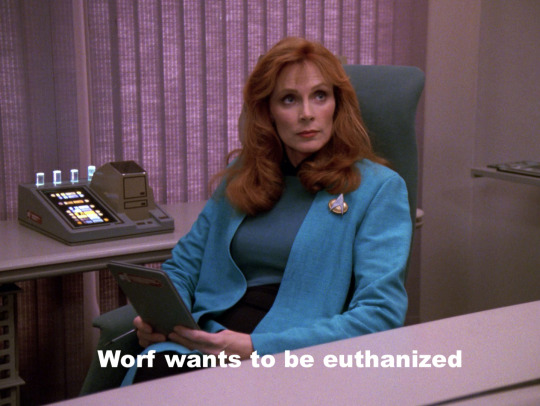
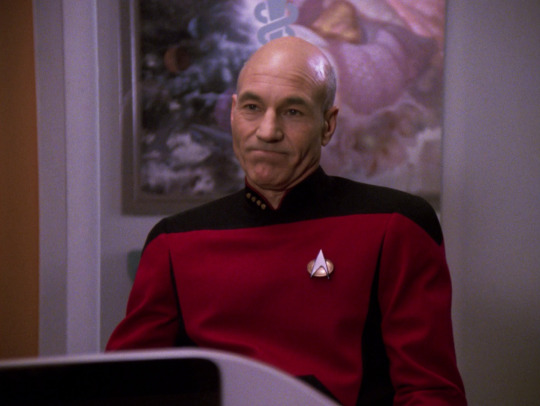

Worf and his Klingon shenanigans
2K notes
·
View notes
Text
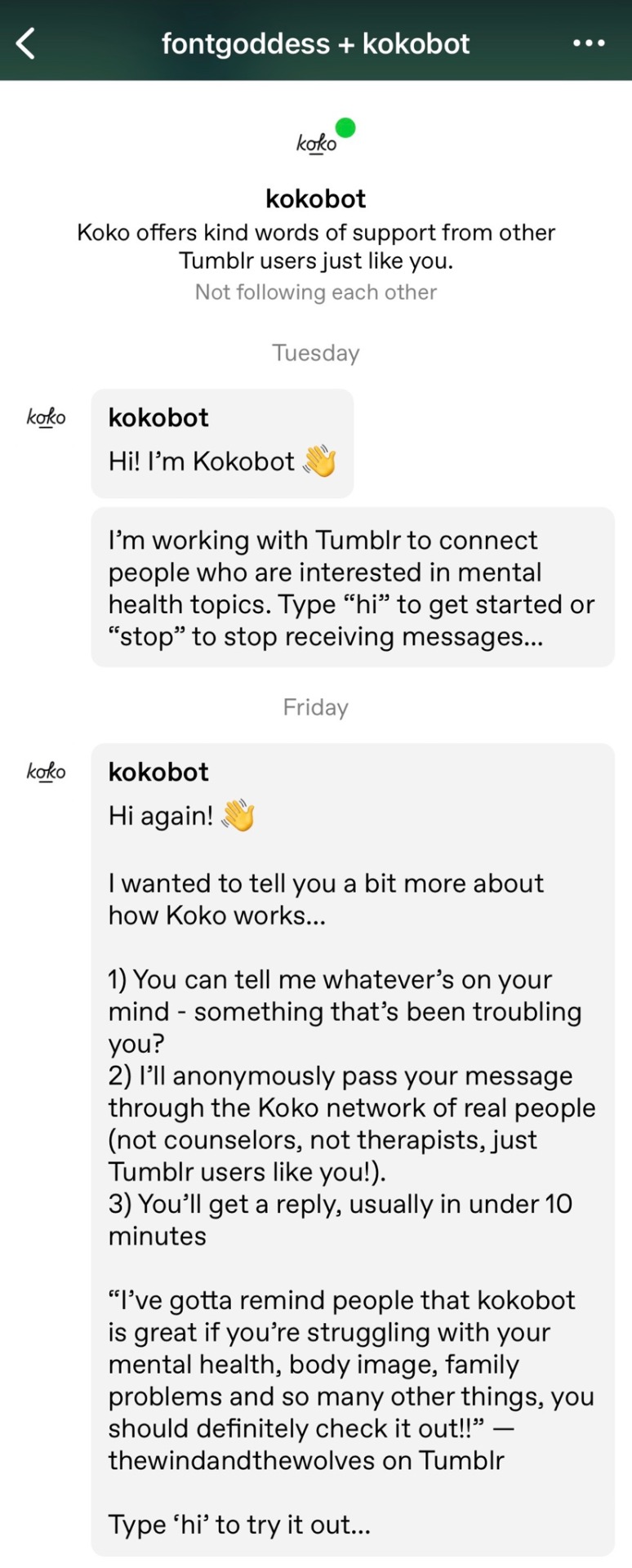
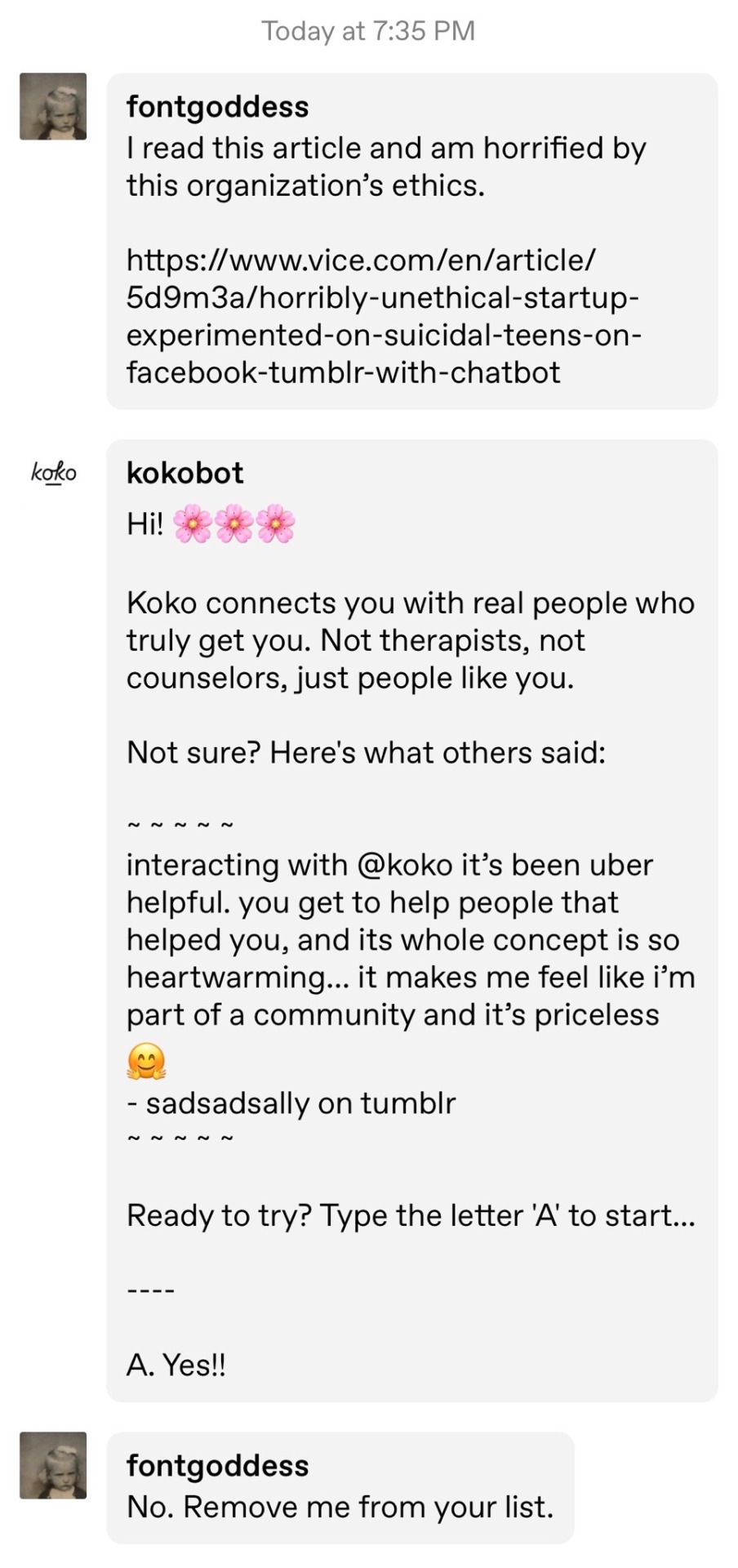
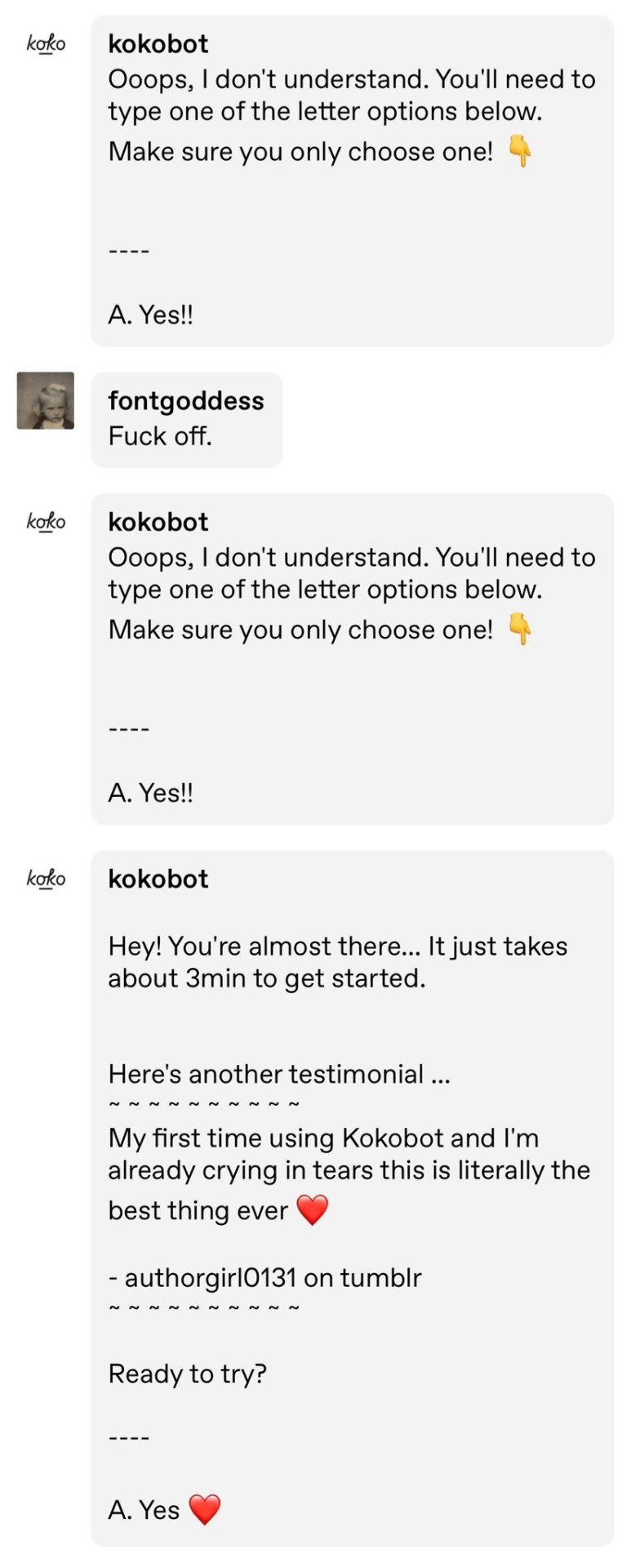
If I were running a chatbot that was being criticized for problems with consent, I would make sure that it understands the word “no” without having to be blocked and reported.
I’d also make it so that it didn’t send unsolicited messages to everyone sharing articles about its ethics lapses as if they want to use it.
Even for an old-school chatbot this is just staggeringly incompetent and a gigantic flashing warning sign that the organization should not be trusted with sensitive data and high-stakes interactions.
#koko#chatbot#mental health#medical ethics#ethics#suicide prevention#consent#trigger warning#kokobot
6K notes
·
View notes
Text
We're talking about personal morals here, not legality.
–
We ask your questions so you don’t have to! Submit your questions to have them posted anonymously as polls.
#polls#incognito polls#anonymous#tumblr polls#tumblr users#questions#polls about ethics#submitted dec 5#ethics#media
3K notes
·
View notes
Text
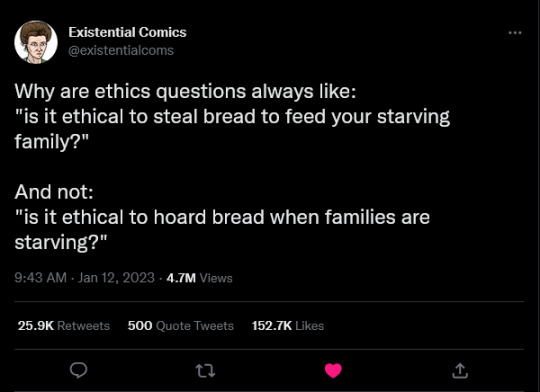
#ethics#critical thinking#capitalism#society#economics#poverty#homelessness#class struggle#inequality#class war#corporatism#working class#class warfare#authoritarianism#communism#anarchism#socialist#antifascist#anarchocommunism#revolution
6K notes
·
View notes
Quote
Wherever there are politics or economics no morality exists.
Friedrich Schlegel, Ideas
685 notes
·
View notes
Text
Saturn has 83 moons. 63 moons are confirmed and named, and another 20 moons are awaiting confirmation of discovery and official naming.
This is their dynamic visualization while they travel with Saturn through space
#physics#astronomy#science#quantummechanics#quantum mechanics#stoicism#society#psychology#ethics#morality
740 notes
·
View notes
Text
There was a group of three women from different points in the Victorian Era who would go around murdering people while debating the ethics of murdering them. It didn’t stop the murdering, though.
#dream#text#March 10th 2024#victorian era#victorian#murder tw#death tw#ethics#violence tw#queueueueueueueueueueueueueue
528 notes
·
View notes
